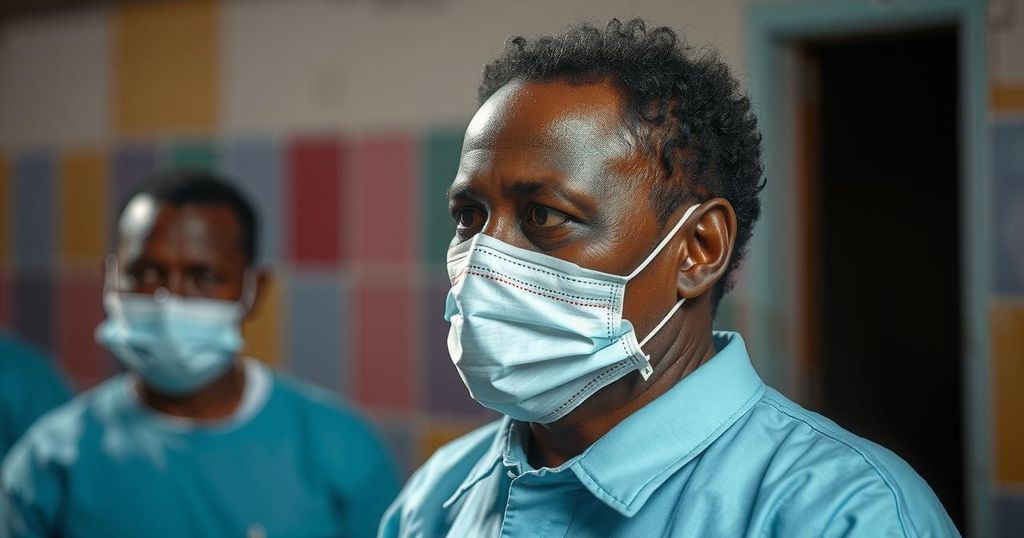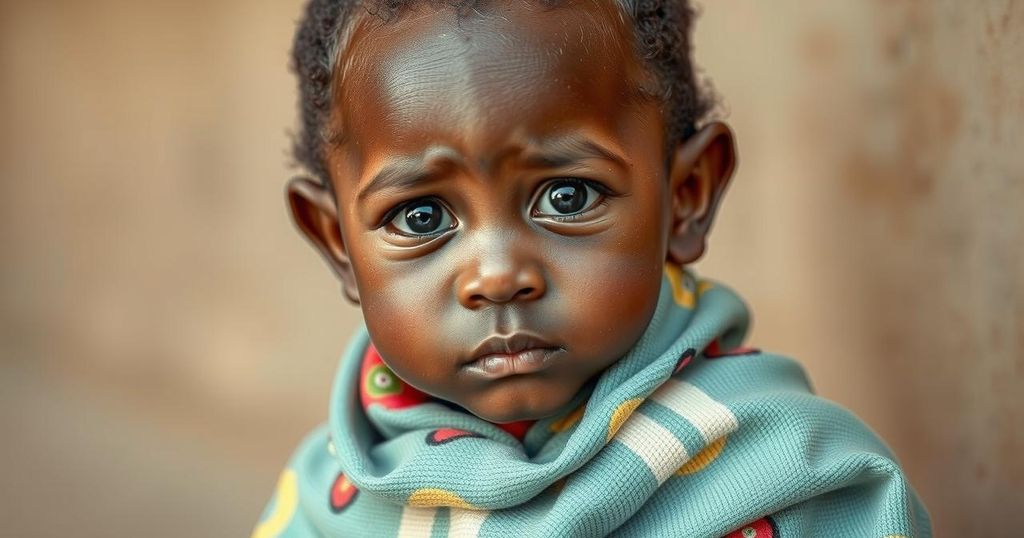Lifestyle
ABC NEWS, AFRICA, AFRICA CDC, AFRICA CENTRES FOR DISEASE CONTROL AND PREVENTION, AFRICAN UNION, ANGOLA, CDC, CONGO, DEMOCRATIC REPUBLIC OF CONGO, DISEASE, DISEASE OUTBREAK, DRC, FOOD POISONING, FRANCISCO, GLOBAL HEALTH AGENCY, HEALTH, HOSPITALIZATION, KWANGO, NORTH AMERICA, PETER CHIN - HONG, PUBLIC HEALTH, REUTERS, SAN FRANCISCO, UNITED STATES, UNIVERSITY OF CALIFORNIA, UNIVERSITY OF CALIFORNIA, SAN, WHO, WORLD HEALTH ORGANIZATION
Ethan Kumar
0 Comments
Investigation Underway for Mysterious Illness in Congo Killing 79 People
A lethal unidentified illness in the DRC has resulted in 79 deaths and nearly 400 cases since late October. Patients present flu-like symptoms, including headache and difficulty breathing, with a significant number of cases among children. Health agencies are investigating the illness, and issues in disease detection and response capabilities are highlighted.
Health officials are currently investigating a lethal unidentified illness that has emerged in the Democratic Republic of Congo (DRC). Since its detection in late October, nearly 400 cases and at least 79 fatalities have been recorded in the Kwango province, close to the border with Angola. The Africa Centres for Disease Control and Prevention (Africa CDC) has noted that the symptoms reported by patients include fever, headaches, cough, and difficulty breathing, with a significant occurrence of anemia among those affected. The World Health Organization is collaborating with local authorities to ascertain the nature of this outbreak, emphasizing the urgency of laboratory investigations.
The outbreak reportedly commenced around October 24 in a remote region of Kwango. By December 5, 376 cases and 79 deaths were reported by the Africa CDC, although local officials indicated that 143 individuals may have succumbed to the illness. Notably, children under five years old comprise over half of the cases, raising alarm about their vulnerability. Health experts underline the gravity of the situation, given the high mortality rate relative to the number of cases confirmed. The investigation remains ongoing, with experts pursuing clarity about the disease’s symptoms and progression.
Additionally, the correlation of anemia as a symptom in many patients has prompted questions regarding its causation—whether it is a result of the unidentified disease or pre-existing nutritional deficiencies. Experts caution that the detection of mild or asymptomatic cases remains uncertain, complicating the assessment of the illness’s overall impact. There are anticipations for laboratory results regarding the disease’s characteristics, which are expected shortly. Acknowledging the gap in disease detection in remote areas, health officials emphasize the necessity for robust surveillance systems to better respond to such public health threats.
The Democratic Republic of Congo has been grappling with various health challenges, including infectious diseases. The emergence of this mysterious illness, which is causing significant morbidity and mortality in the Kwango province, raises concerns about the region’s health infrastructure and disease surveillance capabilities. The Africa CDC and WHO are involved in a collective effort to identify the nature of the outbreak while addressing underlying issues in disease reporting and response protocols that have been exacerbated by ongoing conflicts in the region.
In conclusion, the outbreak of a mysterious disease in the Democratic Republic of Congo poses a substantial public health challenge, particularly affecting the vulnerable pediatric population. Health authorities are engaged in urgent efforts to investigate and manage the outbreak while recognizing the need for improved disease detection systems in remote regions. The collaborative efforts between local and global health entities underscore the importance of timely response in safeguarding public health.
Original Source: www.goodmorningamerica.com




Post Comment